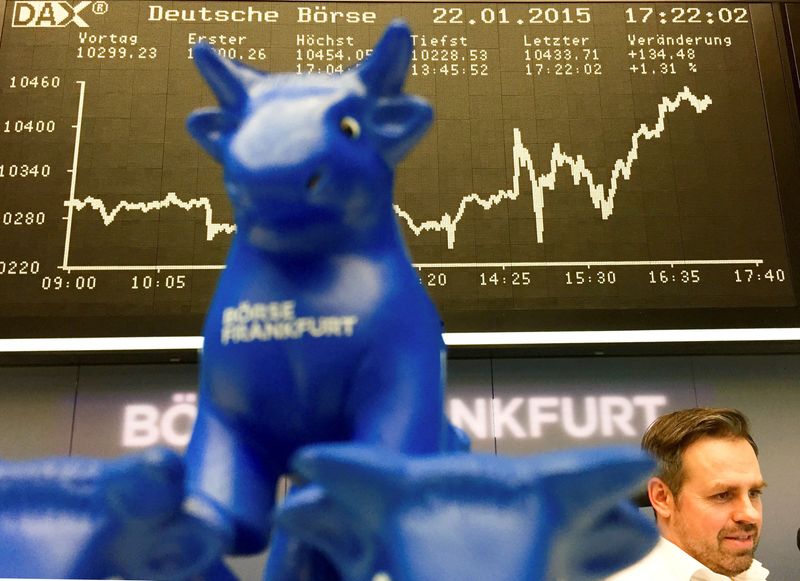This post was originally published on this site

Investing.com – European stock markets are expected to trade marginally higher at the open Thursday, as investors concentrate on the region’s banking sector and the release of fresh inflation data.
At 02:00 ET (06:00 GMT), the DAX futures contract in Germany traded 0.3% higher, CAC 40 futures in France climbed 0.2% and the FTSE 100 futures contract in the U.K. rose 0.2%.
European equities closed firmly higher Wednesday, led by gains from UBS (SIX:UBSG), as tensions surrounding the banking industry eased.
UBS stock gained over 3% after the Swiss banking giant recruited Sergio Ermotti to return to his role of CEO as the lender attempts to integrate troubled peer Credit Suisse following its government-sponsored acquisition.
However, with fears of a widespread banking crisis easing, investor attention has largely switched to the battle central banks face in trying to tame still elevated levels of inflation.
In the U.S., the Fed’s favorite gauge of inflation, core PCE price index, is due on Friday, but ahead of that comes the release of preliminary CPI data from Germany, the largest economy in the Eurozone.
The first German state to report earlier Thursday was North Rhine Westphalia, the most populous, and its CPI rose 0.6% on the month in March, an annual gain of 6.9%.
This represents a slowing in growth from the previous month’s 0.8%, and annual 8.5%, and offers hope that inflation in this important region might be finally slowing.
Spanish consumer prices, Italian producer prices and Eurozone consumer confidence data are also scheduled for release later Thursday, ahead of Friday’s official Eurozone CPI release.
In the corporate sector, all eyes will be on results from Hennes & Mauritz (ST:HMb), the second-largest international clothing retailer.
Oil prices edged higher Thursday, continuing the week’s positive tone after U.S. crude stocks fell substantially and amid disruptions to Kurdish oil exports.
U.S. crude oil inventories fell by 7.5 million barrels in the week to March 24, according to official data from the U.S. Energy Information Administration, the biggest draw since late November.
Additionally, disruptions in Kurdish oil shipments have cut out about 450,000 barrels per day, or 0.5% of daily global supply, tightening the global supply situation.
By 02:00 ET, U.S. crude futures traded 0.2% higher at $73.13 a barrel, while the Brent contract climbed 0.2% to $77.73.
Both contracts have registered gains of over 2% so far this week, but are nursing sharp losses for the year amid fears that an economic slowdown will severely crimp crude demand.
Additionally, gold futures fell 0.1% to $1,983.05/oz, while EUR/USD edged lower to 1.0842.


